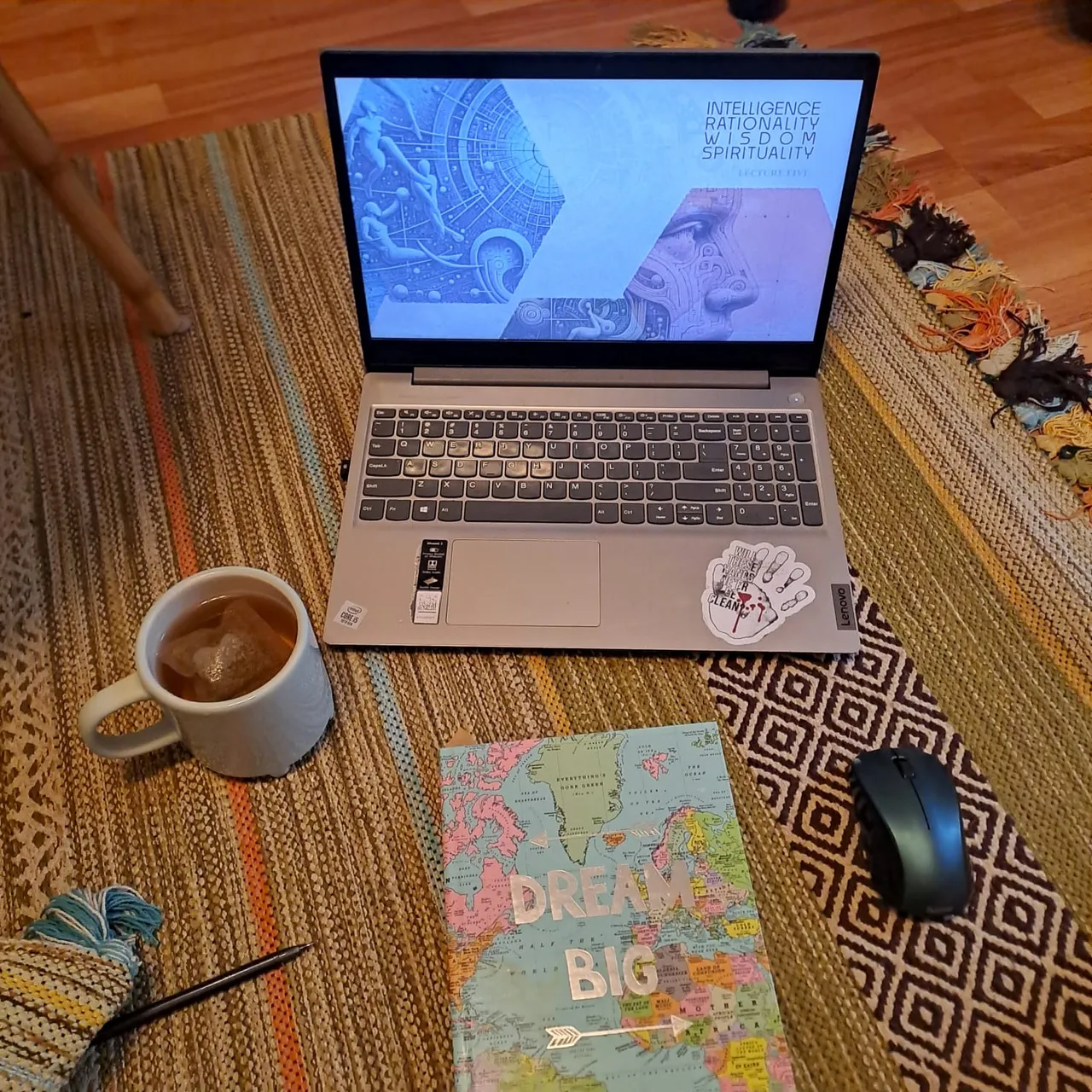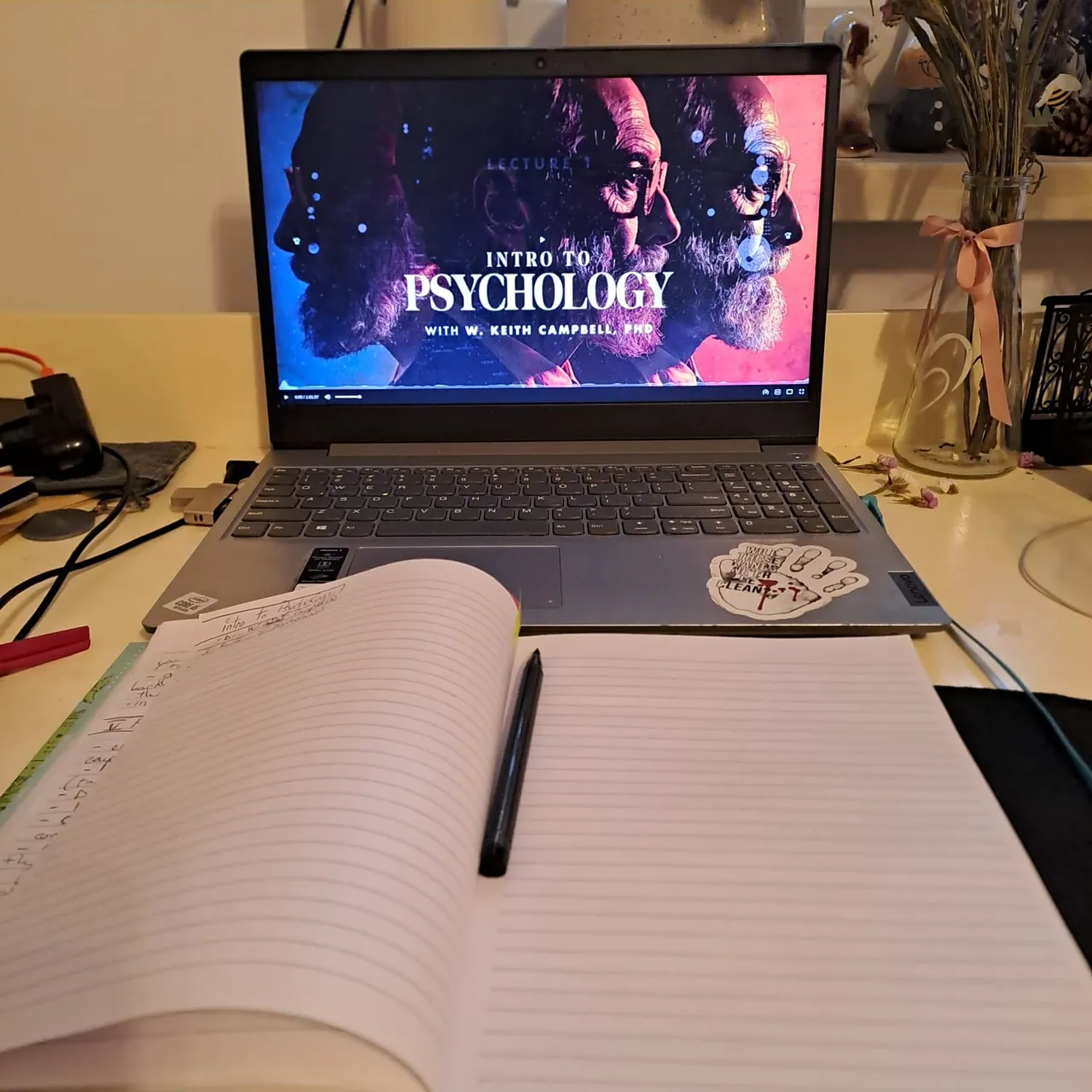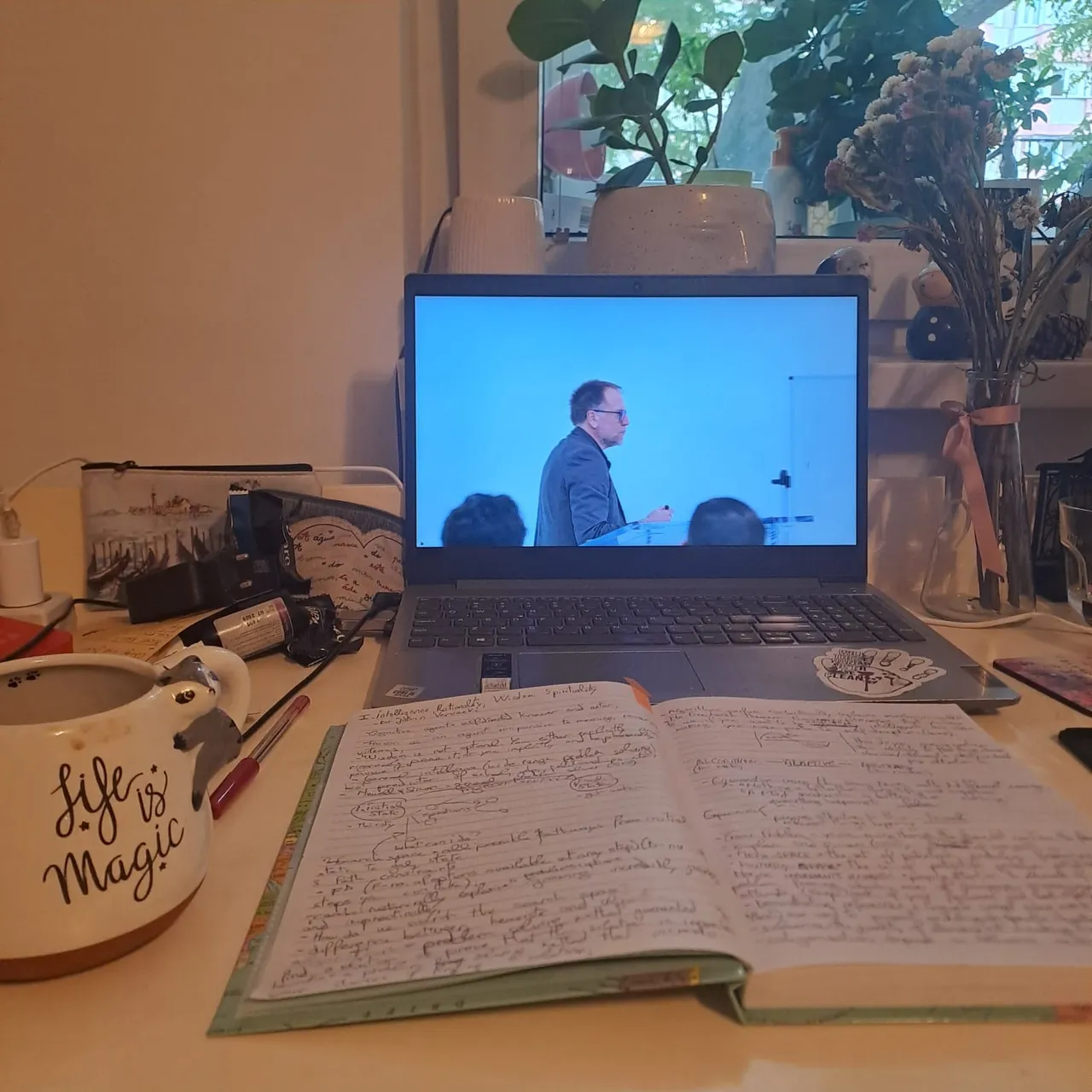A couple of months ago, I mentioned being undecided whether or not Jordan Peterson's new academic venture, Peterson Academy, was worth the investment. At only $450 for a full year of course materials, it seemed like a steal (even if paying in one go was a turn-off for some). Well, as the title hints, I bit the bullet and pre-enrolled. School started I think the thrid week in August, and I've had time to complete three courses and am presently on my fourth. But that's on Shakespearean tragedies, so I think we can safely say it's four deeply satisfying courses.

Intelligence, Rationality, Wisdom & Spirituality
I picked my very first course at random. I liked the name as it sounded somewhat accessible and I didn't want to go with everyone else who was, of course, flocking to Peterson's own course on Nietzsche.
While I was right in assuming that the course would be accessible, it was not the easy course I expected. Dr. John Vervaeke is one of those deeply intelligent, passionate and also charismatic speakers. He has a way of shooting information out at you so that every sixty seconds yield about ten distinct thoughts, each worth pursuing.
In his course, Dr. Vervaeke talked a lot about agency, cognition, problem-framing and biases. He gave us an in-depth understanding of how the mind works, but rather than stay linear in either a biological or a psychological sense, he tied it all masterfully into man's deeper quest for meaning. It was a deeply educative course on falling in love with life.
I was just talking to a fellow student the other day, and everyone's saying you've got to go over the lectures at least a few times to fully reap the benefits.
It was a great course to start on, since from the first three lectures, it already had me thrilled to have signed up.
Symbolism & Christianity
While not the kind of title I'd normally be attracted to, a lot of my reading this past year has centered on symbolism and archetype. Besides, I'd heard Jonathan Pageau speak in Peterson's podcasts and was quite taken with him.
While some parts of the course felt a little repetitive and narrow-minded for my taste, it did expose me to an unusual perspective for me, which is what education should be all about. Looking at things from perspectives different from your own. It also served to reinforce to me the importance of ritual in daily life, and while I don't think a return to Mother Church is what our society needs necessarily, it did help me understand how the gradual wilting of spiritual life has led to major issues in our society.
Introduction to Psychology
I was in two minds about this course, because when I heard Dr. W. Keith Campbell on Rogan, I really didn't like him. He seemed forced and a little fake. Still, I'm very much into psychology and was needing familiar stuff, so I signed up to his introductory psych course.

In the end, I was so happy I did. Within the first two lectures (and this one had a generous eight lectures, as opposed to the previous courses with only six), I was in love with Dr. Campbell. He's a great, personable speaker who took us through a lot of cornerstone psychological concepts and kept it laidback and exciting. He covered childhood development, attachment styles and patterns and the mental health crisis we're going through now.
I know Dr. Vervaeke will be returning with more courses later on in the year, and I'm really hoping Dr. Campbell does, also.
The Shakespearean Tragedies
When I got the notification for this new course with Dr. Andrew Doyle (yeah, they're all doctors - I know!), I was psyched. I've only just started it, but I'm really taken with his teaching style. He's also got this subtle sass. He seems quite anti-woke, which appeals. In the first lecture, he just dropped a really casual snub of the Globe, which to me personally was deeply satisfying - the current program (last several years, really) of the Globe Theatre in London has been one of my biggest pet peeves. It's not even that it's "woke". It's just bad.
The course, however, seems fun as hell.
So, what do I think of my investment thus far?
Personally, I'm quite happy with the quality of the lecturers. Every lecture is roughly an hour long, but for most of them, they're really packed hours that turn into two, more like, with all the pausing to take notes or Google new ideas.
Each course also comes with loads of reading material, some recommended as such, but a lot of research papers and books are mentioned, turning me on to new writers, new ideas. It's really great.

The courses also feature end-of-lecture quizzes that can be quite hard. Pageau's quizzes were pretty obvious, I thought, as are the Shakespeare ones, but the other two were really putting me to work. There's also a Final Exam feature that hasn't been rolled out yet, but that looks promising.
Overall, with 36 courses (15-16 yet to be released) across the entire year, at this quality, it seems like a solid investment to me. And while I would like accreditation, I'm seeing us transition away from that necessity more and more, especially as present-day academia seems trapped in its cancel culture mudslide. So, for me, yeah $450 for a year of solid true university-level education seems pretty great.
It's interesting to me that I'm taking (very slowly) a Yale literature course on YouTube at the same time - I've got half a page of notes from 3 or 4 lectures there. At PA, that's 10-12 pages. Vastly different quality.
Finally, do you have to like and approve of Peterson to benefit from PA? In some ways, obviously the teachers fall into the more conservative, more religious, more anti-woke group. But so far, I haven't seen that many digs at woke culture. No "woman's place is in the kitchen" jokes, no "make your bed and be Andrew Tate" crap, so yeah. It's a good level of higher education that anyone, regardless of political leanings, could benefit from.
